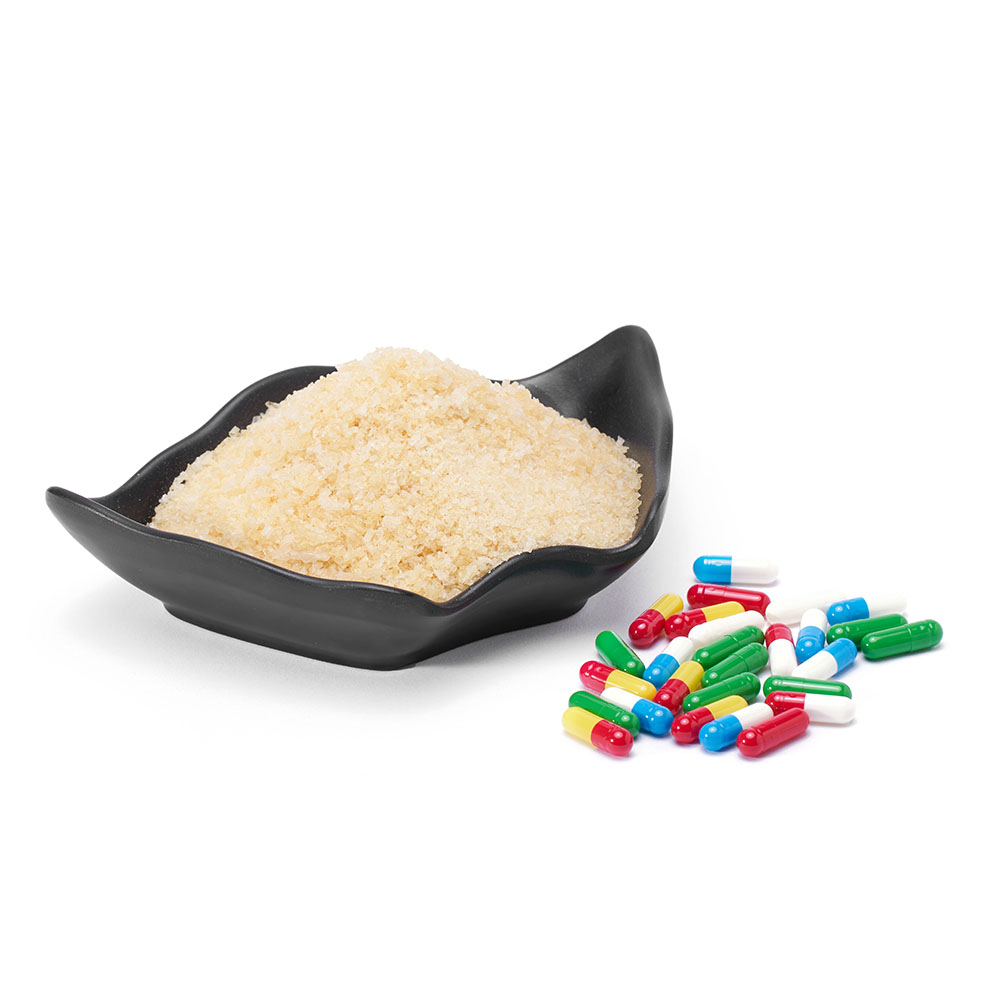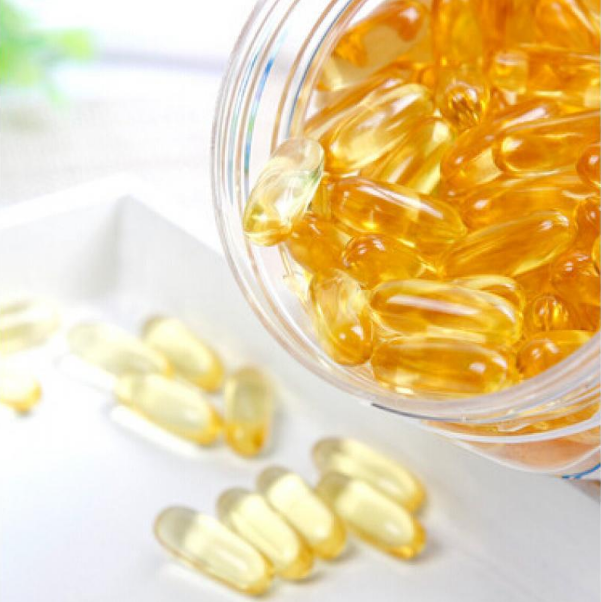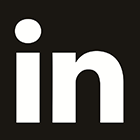With good reason, gelatin is one of the most commonly used substances in pharmaceutical and medical applications. It is virtually universally tolerated, has extremely beneficial elasticity and clarity characteristics, melts at body temperature, and is thermoreversible. Gelatin is a very adaptable substance with various advantages for pharmaceutical products like capsules and tablets, among others.
Both hard and soft capsules' shells are commonly made of gelatin, which effectively shields the contents from airborne contaminants, microbial development, light, oxygen, contamination, and taste and odor.
Hard Capsules
75 percent of the gelatin capsule market is made out of hard capsules. 1 They are also referred to as two-piece capsules and are made up of two cylindrical shells that are hermetically sealed together by a cap that snugly fits over the body. For humans, they can be made in sizes from 00 to 5, and they can also be translucent or colored. It's also possible to imprint.
Powders, granules, pellets, and mini-tablets are frequently used as fillers for hard capsules. Using techniques created to seal and package the capsules while upholding drug safety regulations, they can also be filled with liquids and pastes.
Soft Capsules
Soft capsules, on the other hand, profit from pharmaceutical gelatin's capacity to dissolve in hot water and solidify upon chilling. They have a single-piece, hermetically sealed flexible shell. They can produce shells with a variety of forms and colors by using either a liquid or a semi-solid filler.
Although though they only account for around 25% of the gelatin capsule market, soft capsules have various advantages over many conventional oral dose forms. They include increased swallowability, protection of APIs, and quick dissolution in gastrointestinal tract gastric fluids. Moreover, compared to standard dose forms, the absorption of poorly soluble substances included in soft capsules may be increased.


Tablets
Gelatin can be utilized as a coating or binder for tablets, providing a more affordable option to capsules. There is no chance of crosslinking with tablets, which also offer the option of notching for dose splitting.
Tablets, on the other hand, can only be used with solid excipients and APIs, and dissolving is slower, formulation is more challenging, and there is less protection for the active components from air and light. Moreover, swallowability is more difficult.
During granulation, gelatin can act as a binder to hold powders like starch, cellulose derivatives, and gum acacia together. Gelatin coatings can also aid in addressing some of the shortcomings of tablets. They include enhancing swallowability, lowering taste and odor, and assisting in shielding APIs from oxygen and light, among other things.
Medical Devices
Gelatin has several advantages that make it ideal for a range of healthcare applications. It is almost universally tolerated, has excellent cytocompatibility and minimal immunogenicity. It is also highly purified with no risk of contamination and, in addition to controllable physical parameters, offers highly reproducible production.
Its uses include hemostatic sponges, which not only effectively stop bleeding, but are also bioabsorbable and speed up the healing process by promoting the migration of new tissue cells. Meanwhile, ostomy patches use gelatin as an adhesive for the skin.
Kindly feel free to contact we Gelken, a professional gelatin manufacturer in China, for getting more details and specifications.
Post time: Mar-09-2023







